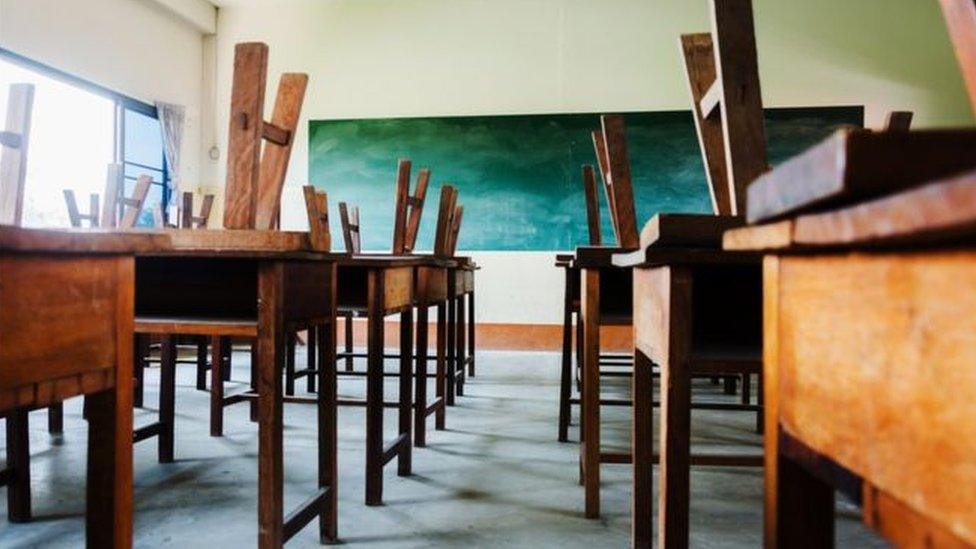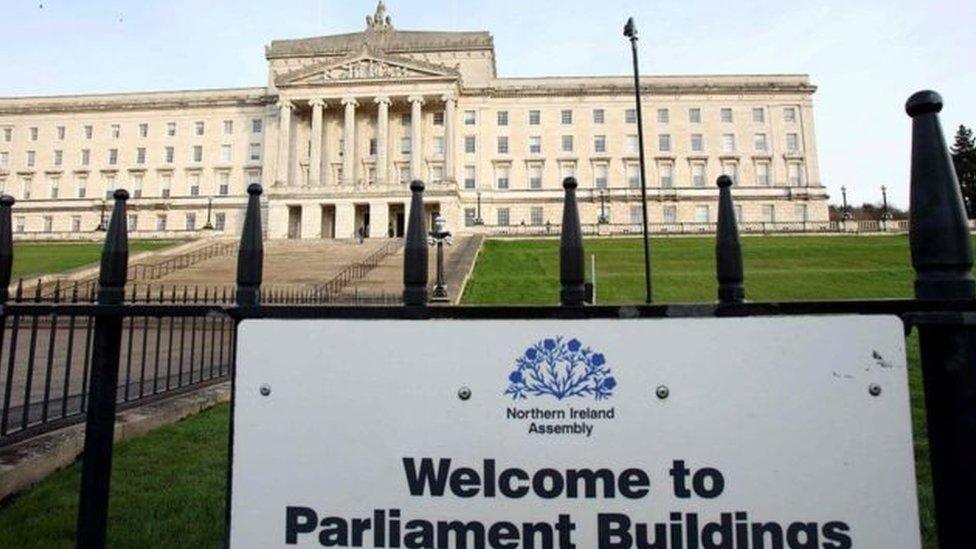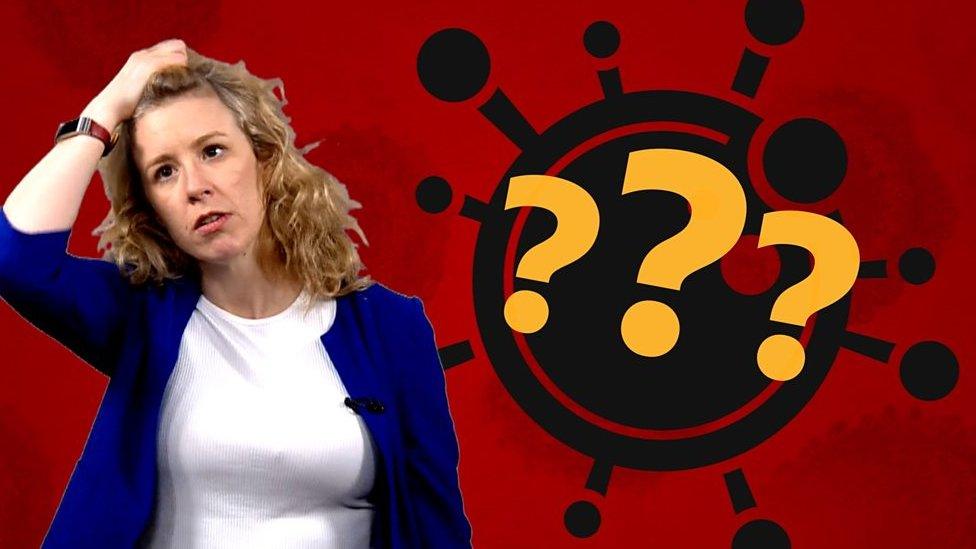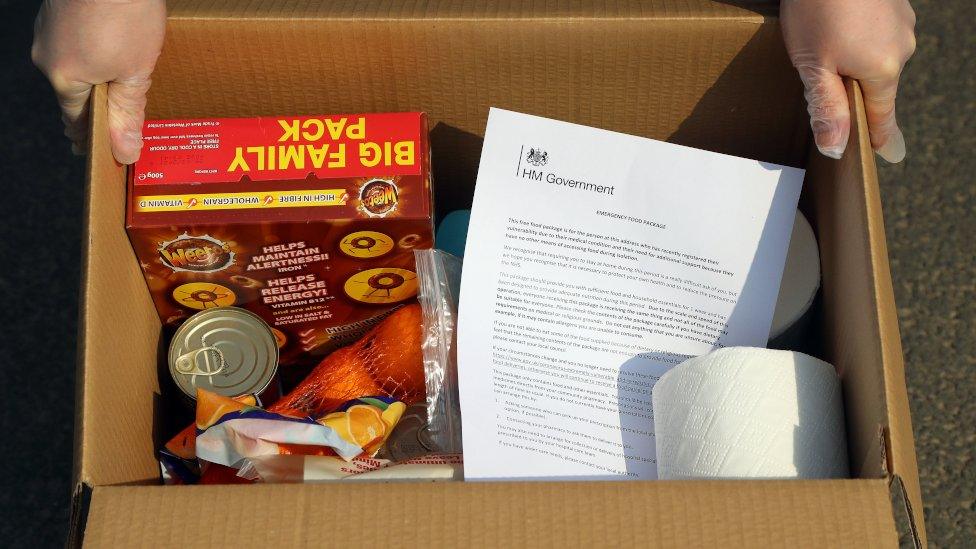Coronavirus: Can Stormont step up?
- Published
- comments

The coronavirus crisis is a huge task that even long-standing governments are struggling to manage.
Spare a thought for Northern Ireland, where the power-sharing executive has only been back up and running for two months.
Given the scale of what we're facing, urgency is the order of the day.
However, criticism has been lobbed at the Stormont executive that ministers have been too slow to respond, and we've even seen the crisis being politicised with parties split about the best way forward.

EASY STEPS: How to keep safe
A SIMPLE GUIDE: What are the symptoms?
CONTAINMENT: What it means to self-isolate
HEALTH MYTHS: The fake advice you should ignore
MAPS AND CHARTS: Visual guide to the outbreak
VIDEO: The 20-second hand wash

Money
Northern Ireland is getting extra cash to try to mitigate the effects of the virus, as job losses begin to soar.
Some of this was announced in last week's budget, with an extra £640m added to that total on Tuesday.

The NI Executive has been pressed to move now to decide where funding goes and ensure it gets there quickly
Finance Minister Conor Murphy decided businesses in NI won't pay rates for the next three months: a move that was only cautiously welcomed by business leaders who have said much more needs to be done - or few companies will survive this period.
On Wednesday, the executive announced more measures for business including grants and the setting up of funds to help community and voluntary groups stay afloat.
The economy will struggle, but all of Stormont's departments will be scrapping for extra resources to protect their services.
Just a few of those areas include:
Health: Extra funding so that those on the frontline can continue to protect patients and staff, and for additional equipment
Education: Already the executive has committed to continuing free school meals for 100,000 children, when all schools close, but has provided no detail about how that will work
Communities: How will the benefits system cope as more people, finding themselves out of work, rely on it, perhaps for the first time in their lives?
The executive has been pressed to move now to decide where funding goes and ensure it gets there quickly.
But sorting out public finances isn't the only challenge.
School closures
The issue of school closures has split the executive, in a totally predictable way.
Once schools in the Republic of Ireland were closed, it seemed a matter of time before the same happened in Northern Ireland.
However, the executive's initial - joint - response, was to stick with guidance from the British government to keep schools open.
A remarkable U-turn less than 12 hours later saw the Deputy First Minister, Sinn Féin's Michelle O'Neill, break away from her executive partner, DUP leader and First Minister Arlene Foster, and insist on the immediate closure of all schools.

The issue of school closures has split the executive
The SDLP then joined that call, while the DUP and Ulster Unionists said closing schools would be ignoring advice from the chief medical officer and health officials.
Alliance, the cross-community party, called for a compromise of phased closure from this Friday.
School staff, parents and children were left confused and with no movement from the Education Minister Peter Weir, some took matters into their own hands to close anyway.
Now, all schools in Northern Ireland will be closed from Monday, but the executive will need to work together regarding plans for GCSE and A-level exams, and where children of NHS frontline workers can go, if they cannot stay at home with another guardian.
Crisis communications
The British government has begun daily televised press briefings to keep the public informed about what is happening.
In the Republic of Ireland, there have also been regular press conferences from senior medical officials and the Irish government.
On Tuesday, Green Party leader Clare Bailey accused the Stormont executive of "stumbling" through the crisis and urged ministers to commit to daily updates.
The following day, First Minister Arlene Foster confirmed there would now be daily press briefings from the executive - but will they be televised?
How will they work it, in line with social distancing measures? It's another unprecedented move.
Infrastructure Minister Nichola Mallon later confirmed to the BBC the executive would be "upscaling" its communications - but as of yet, we await the detail.

All of Stormont's departments will be scrapping for extra resources
There is no doubt ministers, senior civil servants and their staff have been meeting around the clock to try to get a handle on this and plot their next moves.
But in times of crisis, people also need messages of reassurance from those in leadership positions.
United front?
There have been loud calls for an all-island approach to the crisis.
But the executive finds itself in a difficult spot: relying on finances from Westminster yet sharing a land border with the Republic of Ireland.
Unionist politicians had been accused of blindly following the British government's policy, while nationalists were criticised for ignoring the advice of UK experts plotting a course through the crisis.
Expect growing pressure on the executive to present the united front that has been somewhat lacking so far.
Wednesday's joint press conference from Arlene Foster and Michelle O'Neill showed they recognise the need to act collectively.
Politicians are no more immune to this crisis than the rest of us - but they have to work for the good of everyone in Northern Ireland.
The question is can they put aside their differences and rise to the challenge?
It's more important than ever.
- Published18 March 2020

- Published24 December 2020

- Published3 April 2020
